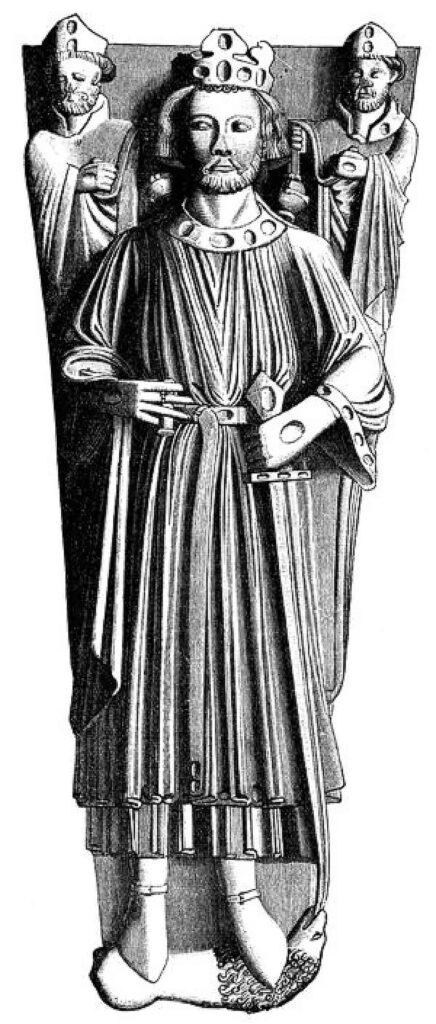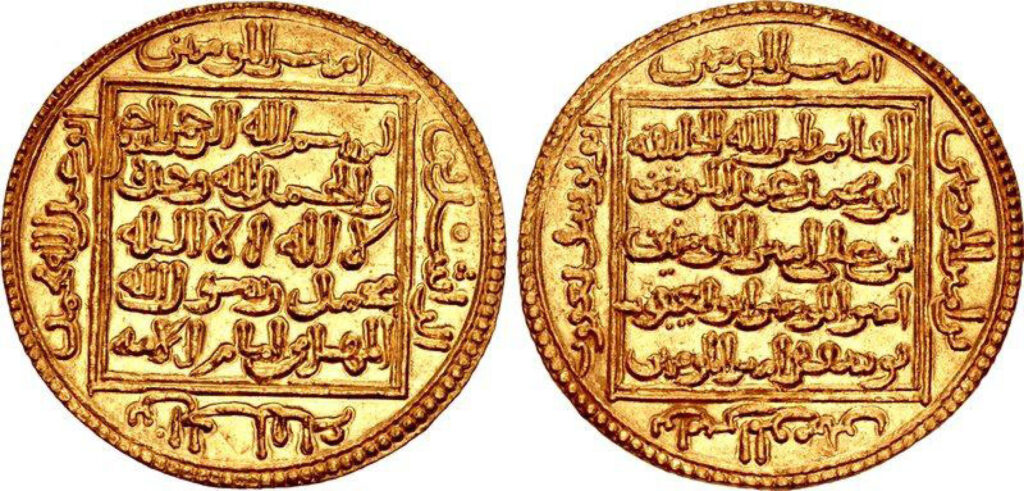Did King John Offer to Make Islam England’s State Religion?
By Misbahuddin Mirza

May/Jun 2024
Two years before King John Lackland (ruled 1199-1216) was forced to sign the Magna Carta (June 1215), he unsuccessfully tried to make England an Islamic nation. This is documented in the “Chronica Majora,” written a few years after the event by the Benedictine monk Matthew Paris.
Over the centuries, most Western historians have either dismissed the entire episode of the English emissary to Caliph Al Nassir’s (1199-1213) court or the section of Paris’ text where King John offers to make Islam England’s state religion.
This dismissive attitude could be due to misplaced nationalism or to the selective amnesia of England’s precolonial era of isolation and vulnerability. Even at the beginning of Elizabeth I’s reign (1558-1603), England was desperately pleading with the powerful Ottoman sultan, as well as to the rulers of Morocco and Iran, to establish trade and military ties.
Jerry Brotton (professor, Renaissance studies, Queen Mary University of London; author, “The Sultan and the Queen: The Untold Story of Elizabeth and Islam” (Viking, 2016), writing in the New York Times, says “In the 1580s she signed commercial agreements with the Ottomans that would last over 300 years, granting her merchants free commercial access to Ottoman lands. She made a similar alliance with Morocco, with the tacit promise of military support against Spain…. Elizabeth began writing letters to her Muslim counterparts, extolling the benefits of reciprocal trade. She wrote as a supplicant, calling Murad ‘the most mighty ruler of the kingdom of Turkey, sole and above all, and most sovereign monarch of the East Empire’ (“England’s Forgotten Muslim History,” Sept. 17, 2016).
Queen Elizabeth also played on their mutual hostility to Catholicism, describing herself as “the most invincible and most mighty defender of the Christian faith against all kinds of idolatries.” Like Muslims, Protestants rejected the worship of icons and celebrated God’s unmediated word; Catholics favored priestly intercession. She deftly exploited the Catholic conflation of Protestants and Muslims as two sides of the same heretical coin. Her policy held off a Catholic invasion, transformed English tastes and established a new model for joint stock investment that would eventually finance the Virginia Company, which founded the first permanent North American colony.
It turns out that Islam, in all its manifestations — imperial, military and commercial — played an important part in the story of England. Today, when anti-Muslim rhetoric inflames political discourse, it is useful to remember that our pasts are more entangled than is often appreciated.
John inherited this impoverished kingdom. His problems soon began increasing at an exponential rate. When asked to mediate between the rival Lusignan and Angouleme families, John married Isabella, the heiress of Angouleme, who had been betrothed to Hugh de Lusignan. The ensuing war deprived John of Normandy, Anjou, Maine and parts of Poitou — thus losing the vast Angevin Empire to Philippe II Auguste of France. Then his barons revolted and seized London.
Brotton describes England’s status in 1580 under Elizabeth I, “The trouble was that the Muslim empires were far more powerful than Elizabeth’s little island nation floating in the soggy mists of Europe” and presents the Muslims’ position as “The Ottoman authorities saw their ability to absorb people of all faiths as a sign of power, not weakness, and observed the Protestant–Catholic conflicts of the time with detached bemusement. Some Englishmen even converted to Islam.”
King John had ruled England almost 400 years before Elizabeth I. His predecessor, King Richard I, had bankrupted the Angevine empire to raise funds for the unsuccessful Third Crusade. When Richard was captured, a ransom of 150,000 marks — 65,000 pounds of silver, estimated at three times the English crown’s annual income — had to be paid to the Holy Roman emperor.
In 1208, Pope Innocent III served an Interdict on England, after King John refused to accept the pope’s appointee, Stephen Langton, as Archbishop of Canterbury. This prevented church worship, marriages, burials and baptisms. Three years later he excommunicated John, thus absolving the king’s subjects from their oaths of allegiance. This gave the barons’ their reason for revolting and allowing the French monarch to invade England to remove John from power.

With these seemingly insurmountable troubles at home, King John sent a delegation to Morocco’s Almohad Court in 1212. This delegation is the subject of Ilan Shoval’s groundbreaking “King John’s Delegation to the Almohad Court (1212): Medieval Religious Interactions and Modern Historiography” (Brepolis Books, 2016), which discusses this remarkable event described in Matthew Paris’ “Chronica Majora” (1259; Cambridge University Press, 2012; first published in 1883). According to Paris, King John sent a delegation to the Almohad caliph al-Nasir in which he offered to convert and make his kingdom a tributary of the caliph.
Writing in The Times (“The King who wanted Sharia England,” Feb. 16, 2008) Graham Stewart states, “If Matthew Paris is to be believed, this was the background to perhaps the most bizarre diplomatic initiative in English history. John dispatched Thomas of Edrington, Radulus, son of Nicholas Esquire, and a cleric, Robert of London, on a top-secret mission to Morocco. On arrival, they approached the powerful Almohad caliph, Muhammad an-Nâsir. Their task was to win his military assistance to help to see off John’s converging enemies. Paris claimed that they brought a letter from the King offering to place England at the Caliph’s disposal and promising that John ‘would not merely relinquish the Christian faith, which he considered vain, but would adhere faithfully to the law of Muhammad.’”
In his book review, Joel Pattison states, “The embassy story has, understandably, attracted critical attention from English historians from the Victorian era to the present, whose views range from wholesale dismissal of the embassy as a malicious fiction, to a more nuanced acceptance of the bare outlines of an English diplomatic mission to Morocco without any offer or conversion or subjugation. Shoval’s contribution to this historiography is a thick reading of the embassy episode in the wider context of Iberian-Almohad diplomacy, religious polemic, and English chancery records. Considering Paris’ well-known animus against John and his awareness of earlier treaties between Christian monarchs and the Almohads, Shoval argues that Paris’ account is suggestive of an authentic diplomatic mission that aimed at a ‘fairly standard offer of a defensive alliance’ between John and al-Nāsir as part of John’s grand campaign to confront Philip Augustus. Furthermore, he argues, Robert of London’s alleged discussion with the caliph about St. Paul could indicate a real conversation between the two informed by longstanding Muslim anti-Christian polemic and by Robert’s possible status as a converted Jew. While Shoval’s overall conclusion about the possibility of an Anglo-Almohad alliance in 1212 is plausible, he occasionally relies on a rather strained reading of Paris’ text to advance the argument.”
Gabriel Ronay, author of “The Tartar Khan’s Englishman” (Orion Publishing Group, 2001), commenting on Stewart’s article in The Times, says, “Graham Stewart’s historical might-have-been, ‘The King who wanted Sharia England’ (Feb. 16), has in fact been in the public domain ever since the publication of my book ‘The Tartar Khan’s Englishman.’ After 9/11 the American National Review quoted my book, commenting: “If King John had succeeded, the Pilgrim Fathers would have sailed for America with the Koran, and there would now be a United States of Islam. This would have prevented 9/11” (“King John and Islam,” Feb. 22, 2008).
Stewart concludes, “At any rate, if the whole story was a concoction, then it ended up missing its target. While subsequent generations of British historians have tended to pass over it as a red herring, it has gained wide currency across the Maghreb. Only the discovery of John’s letter of self-abasement lying undisturbed in some Moroccan archive could prove the story true. And if we could read it now, would apologists for his late Majesty be able to assert that his words had, in fact, been taken terribly out of context?”
Jehan Hakim, a Yemeni American mother of four, community organizer and culturally responsive educator resides in Houston. For more information, contact https://jehanhakim.com/.
Tell us what you thought by joining our Facebook community. You can also send comments and story pitches to horizons@isna.net. Islamic Horizons does not publish unsolicited material.
